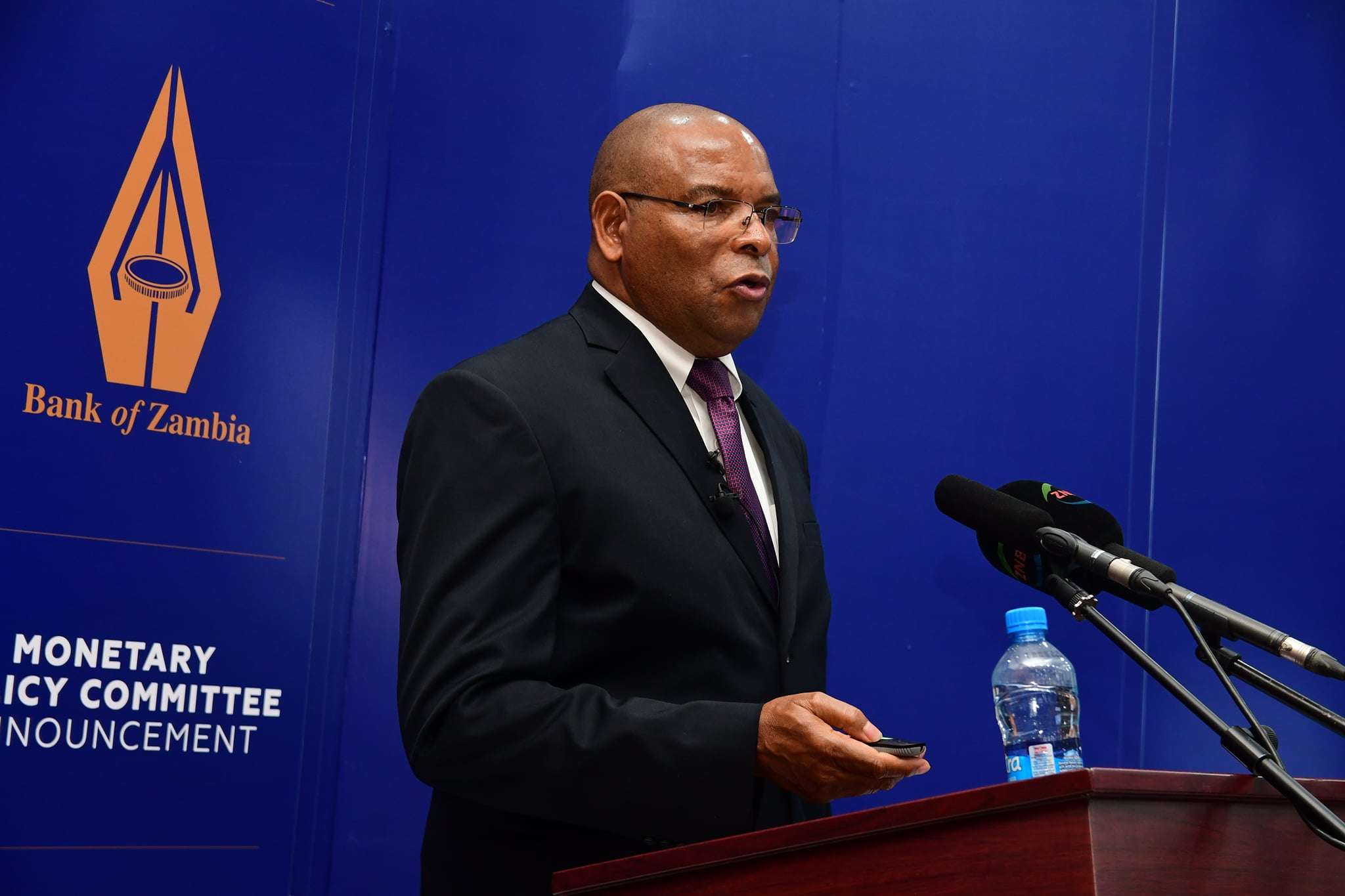• Monetary Policy Committee took into account sharp decline in inflation since the November MPC meeting.
• The forecast shows a continued deceleration in inflation towards the 6.8 percent target range.
• Upside risks to inflation outlook include increase in crude oil prices, possible low crop production due to adverse weather conditions.
Bank of Zambia has maintained the Monetary Policy Rate (MPR) for the first quarter of 2022 at 9.0 percent.
Speaking during the quarterly media briefing, Bank Governor Dr. Denny Kalyalya attributed the decision to maintain the rate to the sharp decline in inflation rate observed since December last year.
Dr. Kalyalya noted that in the 4th quarter of last year, inflation rate declined by 4.1 percent to an average of 18.9 percent due to the appreciation of the Kwacha against the US dollar among other factors.
“In arriving at this decision, the Monetary Policy Committee took into account the sharp decline in inflation since the November MPC meeting and the forecast that shows a continued deceleration in inflation towards the 6.8 percent target range.”
“However, there are upside risks to inflation outlook that include increase in crude oil prices, initial effects of implementing the transition to cost reflection electricity tariffs, possible low crop production due to adverse weather conditions, lingering supply chain bottlenecks induced by the Covid-19 pandemic, and tightening of monetary policies in major economies in response to rising inflation in their jurisdictions,” Dr. Kalyalya said.
He further said the International Monetary Fund (IMF) program will have beneficial effects on the country’s inflation rate, stating that once approved, the deal will give Zambia an opportunity to negotiate on its external debt.
“Inflation rate is projected to continue trending towards the 6- 8 percent target range over the forecast period, 13.2 in 2022 and 7.3 percent in 2023. Underlying this projection are mainly the catalytic benefits of securing an IMF program such as access to budget support, reduction of the external debt burden through restructuring, and unlocking investments, as well as the positive impact of higher Copper prices, mainly through the exchange rate. Further, the dissipation of base effects will contribute to the projected fall in inflation,” he added.
The Bank Governor observed that that annual overall inflation declined sharply to an average of 18.9 percent in the fourth quarter of 2021 from 23.7 percent in the third quarter, mainly due to the appreciation of the Kwacha against the United States Dollar.
Meanwhile, Dr. Kalyalya disclosed that the domestic economy grew by 3.3 percent in 2021 on account of strong performance in the agriculture, communication, technology and retail sectors, adding that Gross Domestic Product is expected to grow by 3.5 percent in 2022 and 3.7 percent in 2023 respectively.
On the other hand, Dr. Kalyalya stated that the Kwacha gained strength against the United States Dollar in December 2021 as a result of positive sentiments after Zambia and IMF reached a Staff Level Agreement, noting that the appreciation rate declined to 7.4 percent in the fourth quarter of the year from 17.5 percent in the previous quarter.
“Most of the pressure emanated from higher demand for the importation of petroleum products while supply declined. To help meet demand and dampen volatility in the exchange rate, the Bank of Zambia continued to support the market and sold a net of US$146.0 million,” he explained.







